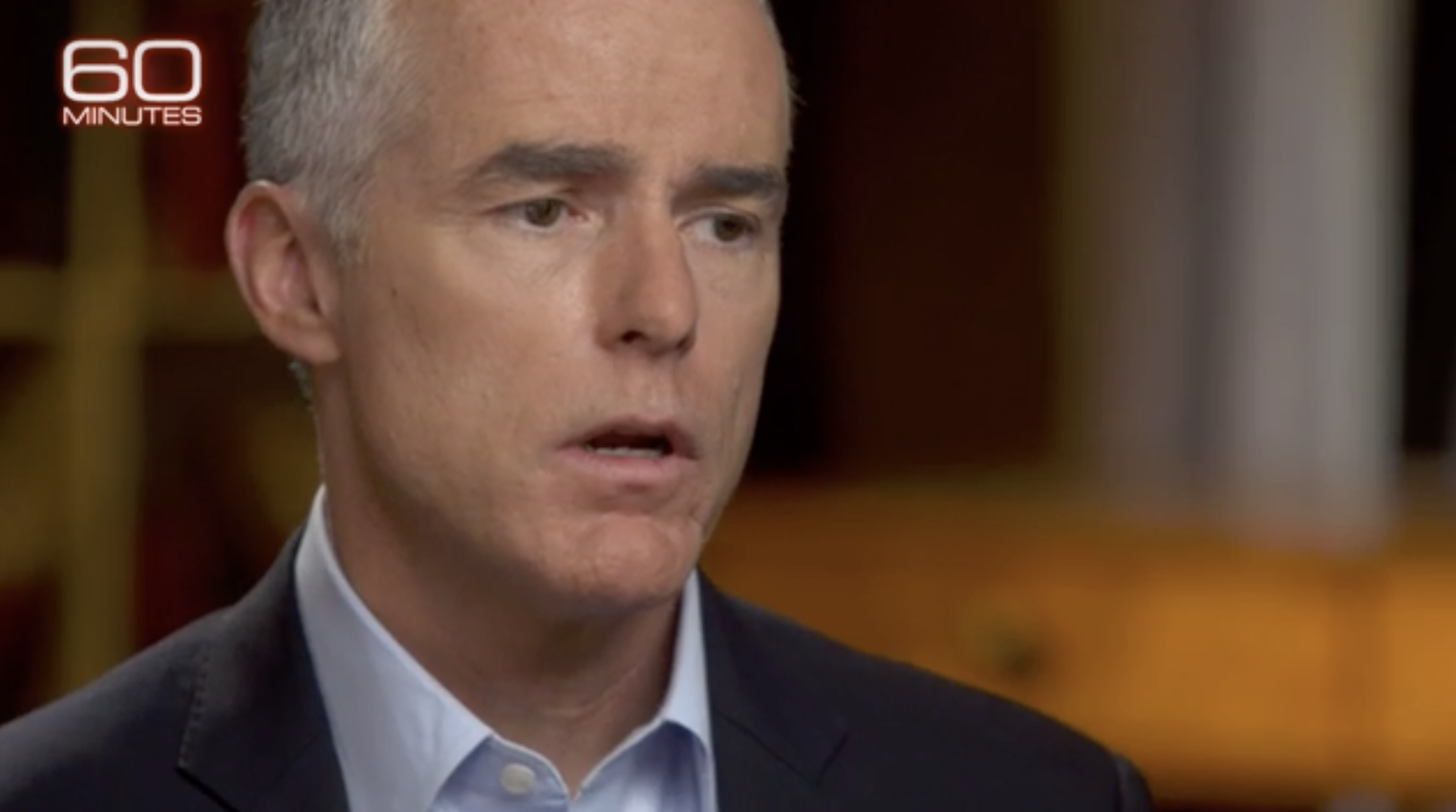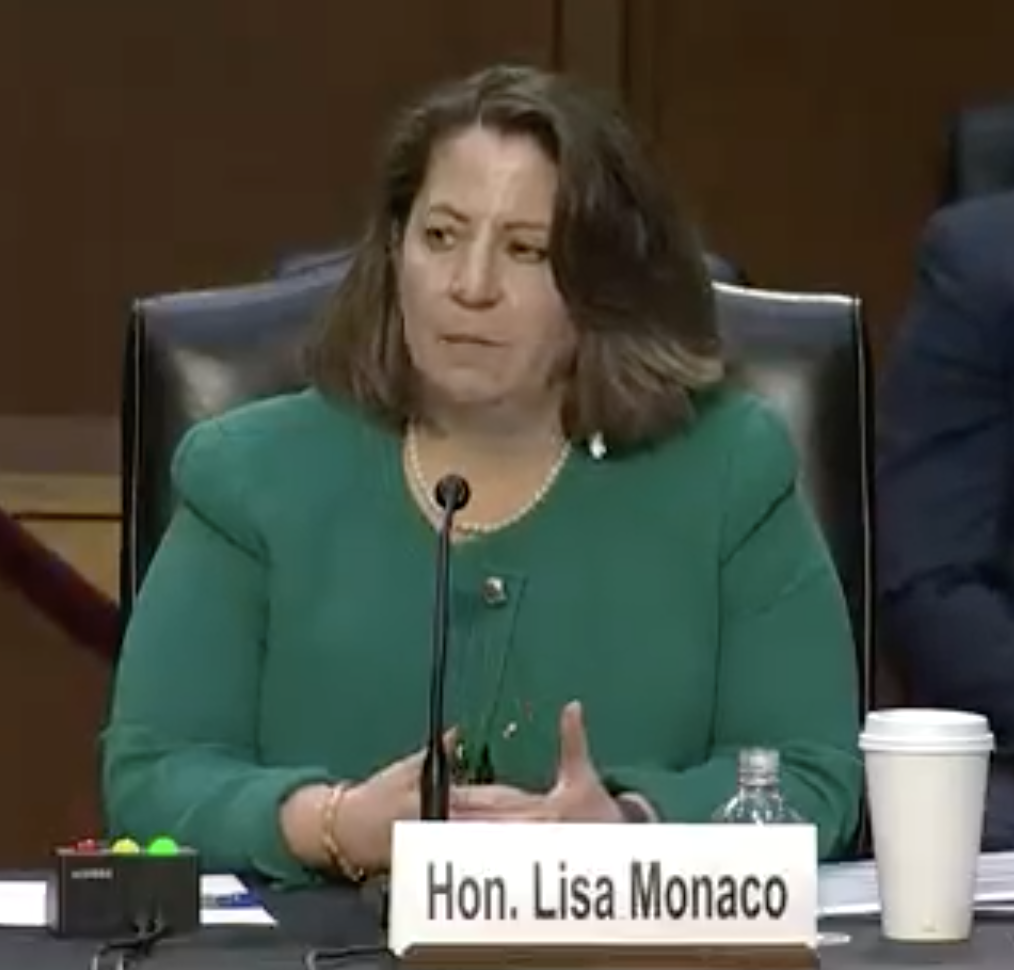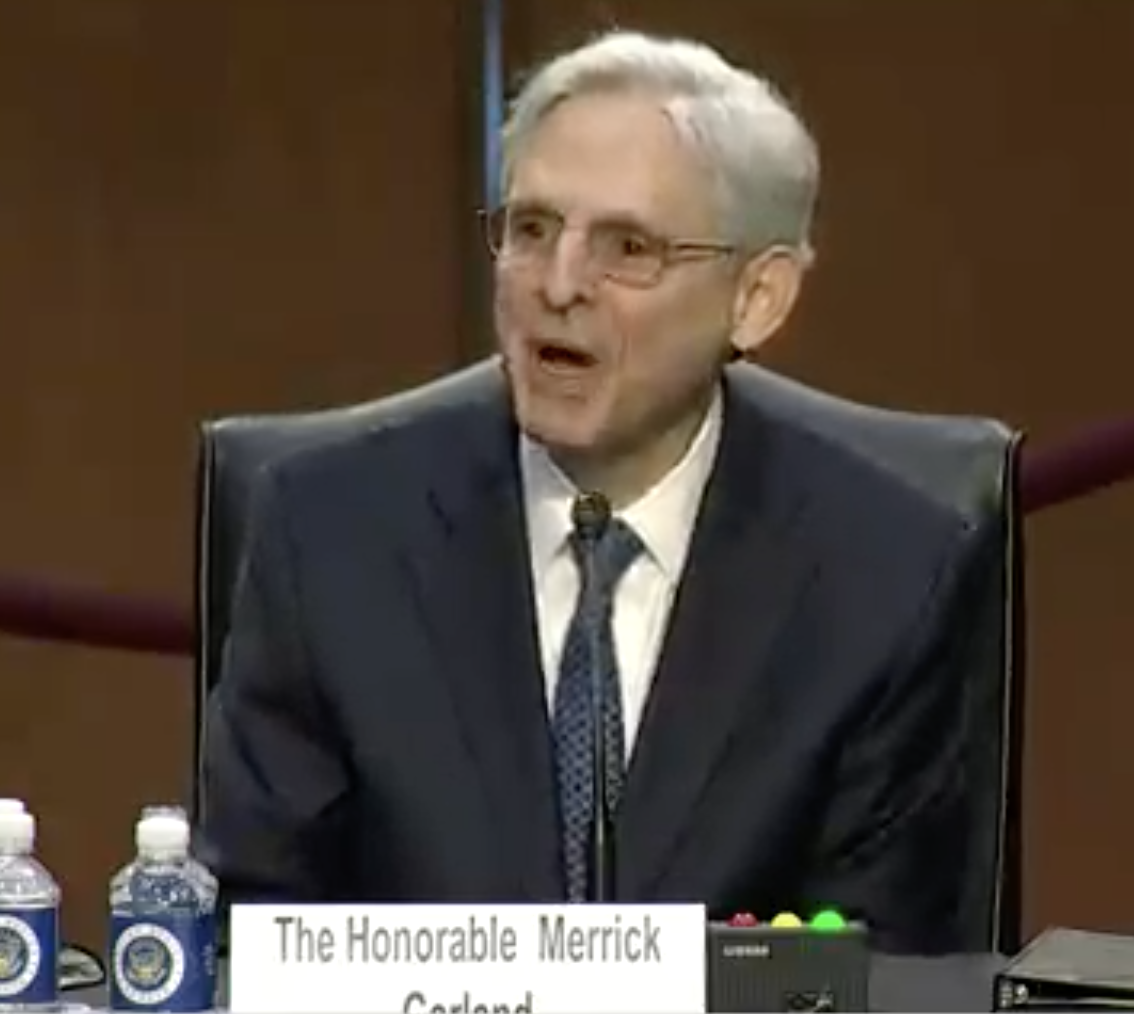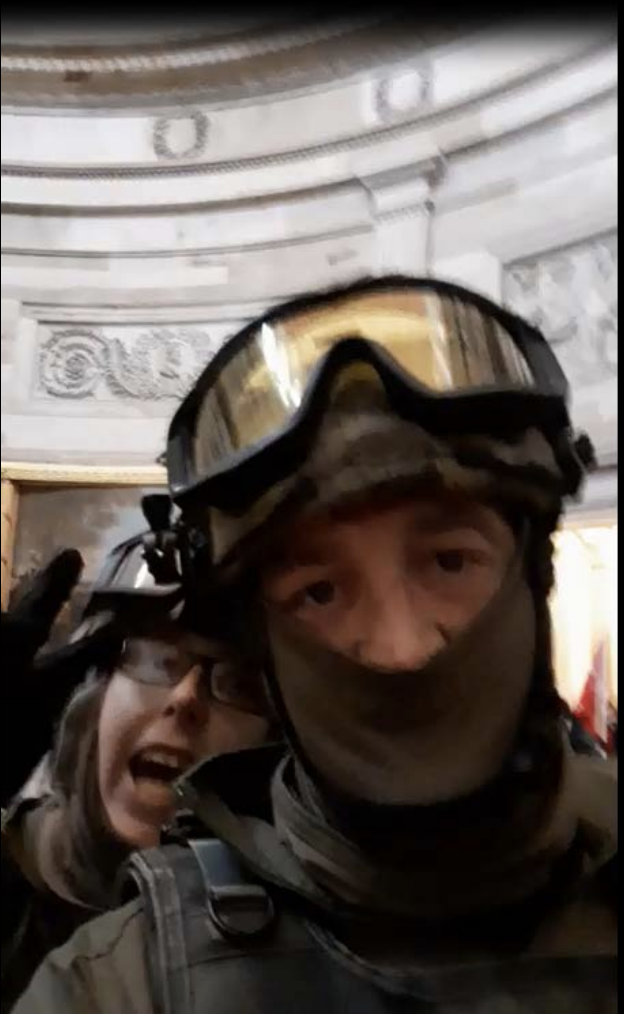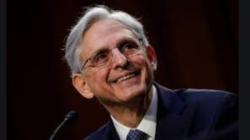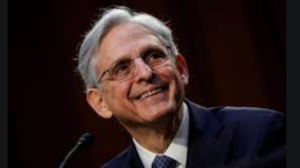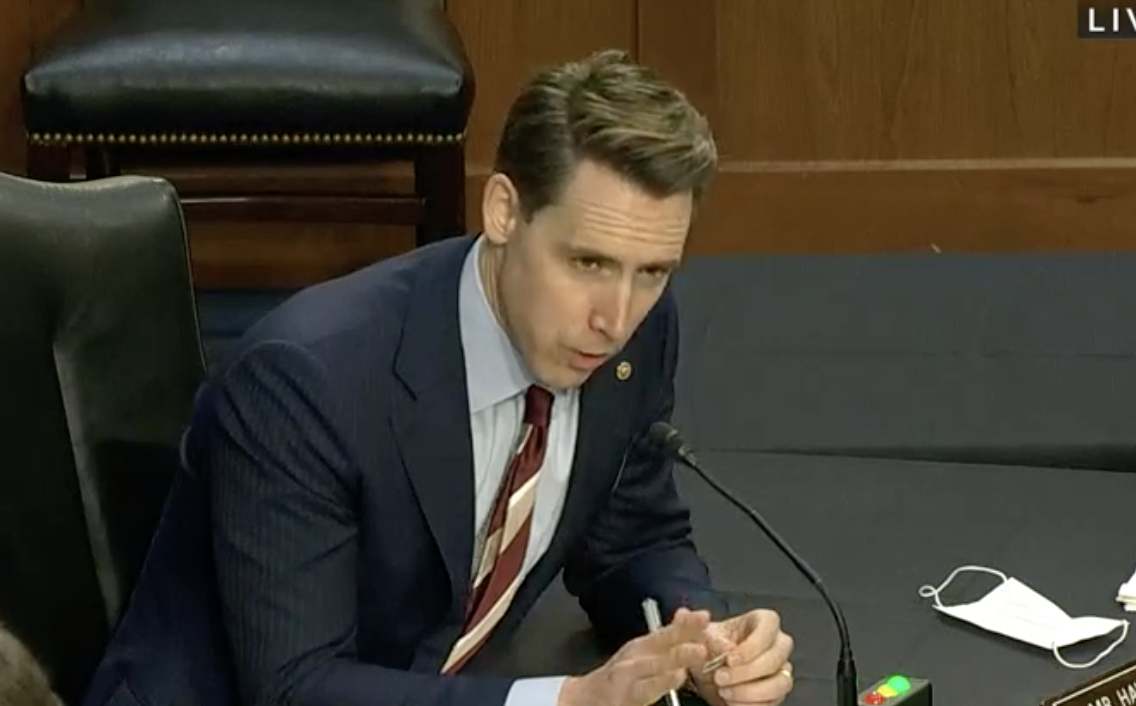Last week, Politico reported as news that non-violent January 6 trespassers might get little to no jail time which — it further claimed — might embarrass the Biden Administration.
Many Capitol rioters unlikely to serve jail time
The cases could embarrass the Biden administration, which has portrayed the Jan. 6 siege as a dire threat to democracy.
I have tremendous respect for the reporters involved, Josh Gerstein and Kyle Cheney. Yet the fact that experienced DOJ beat reporters could claim, as news, that non-violent civil disobedience might get no jail time made me really rethink the reporting on January 6, including my own. It’s crazier still that reporters might claim — generally, or in this situation — that a Democratic President might be embarrassed by DOJ treating civil disobedience as a misdemeanor offense.
In fact, Gerstein and Cheney are reporting on a subset of all the January 6 defendants, fewer than 60 of the 230 who had been formally charged by the time they wrote this, which they nevertheless describe as “many” of them.
A POLITICO analysis of the Capitol riot-related cases shows that almost a quarter of the more than 230 defendants formally and publicly charged so far face only misdemeanors. Dozens of those arrested are awaiting formal charges, even as new cases are being unsealed nearly every day.
Then, four paragraphs later, Politico explains why (they say) this might embarrass the Biden Administration: because both Biden himself and Merrick Garland called the larger event — in which 1,000 people, including 200 for assault and 100 for roles in a militia conspiracy, many still at large, must now be suspects — as a heinous attack.
The prospect of dozens of Jan. 6 rioters cutting deals for minor sentences could be hard to explain for the Biden administration, which has characterized the Capitol Hill mob as a uniquely dangerous threat. Before assuming office, Biden said the rioters’ attempt to overturn the election results by force “borders on sedition”; Attorney General Merrick Garland has called the prosecutions his top early priority, describing the storming of Congress as “a heinous attack that sought to disrupt a cornerstone of our democracy, the peaceful transfer of power to a newly elected government.”
Nowhere in the article do they provide any evidence that the assault on the Capitol wasn’t a heinous attack.
They base their claim that Biden might be embarrassed on expectations that DOJ prosecutors set, without noting that the first charges were filed before Biden was inaugurated and long before Garland was confirmed.
Justice Department prosecutors sent expectations sky-high in early statements and court filings, describing elaborate plots to murder lawmakers — descriptions prosecutors have tempered as new details emerged.
Jacob “QAnon Shaman” Chansley was arrested on January 8 and indicted on January 11. Eric “Zip Tie Guy” Munchel was arrested on January 10 and indicted, with his mother, on February 12. Thomas Caldwell was arrested on January 19 and indicted along with Oath Keepers Jessica Watkins and Donovan Crowl on January 27. They (including Caldwell but not Watkins and Crowl) are the main defendants, of more than 350, about whom prosecutors can fairly be said to have tempered “sky-high” expectations. Their arrests and that expectation-setting happened under Jeffrey Rosen and Michael Sherwin, not under Biden and definitely not under Merrick Garland (under whom DOJ referred Sherwin to OPR for investigation after he did some expectation-setting on 60 Minutes). Even still, for all four (as well as other edge cases about whom the press set high expectations, like Riley June Williams), the investigation remains ongoing and there are reasons, including ties to the militia conspiracies, to believe there was some basis for the original suspicions about these people.
Likewise, the decision to arrest first and investigate later, a decision that led to the flood of arrests before prosecutors really knew who had done the most egregious things during the attack, also occurred under the prior Administration.
Indeed, under Garland (though not necessarily because of Garland or the departure of Sherwin), DOJ seems to have focused more of their ongoing misdemeanor arrests on suspects who might have video footage of interest to prosecutors or defense attorneys, with far more of a focus in recent weeks on arresting assault and militia suspects. And one of the reasons for the delays described in the story is that after Garland came in, DOJ asked for 60 days to catch up on discovery. We may yet learn that he and his subordinates decided to change the “arrest first, investigate later” approach adopted before he came in.
Sure, the press has claimed that the government has backed off some of its claims in the militia conspiracies. They did so, for example, when prosecutors backed off certain claims solely for the purpose of an Ethan Nordean detention hearing that, filings submitted weeks later suggested, may have been an effort to protect a pending conspiracy indictment and, probably, a cooperating witness. They’ve done so with the Oath Keepers, even though recent developments suggest even Jessica Watkins’ lawyer may now understand her role in what appears to be a larger conspiracy coordinated in Signal leadership chats is more damning than Watkins originally claimed. If anything, the Oath Keeper and Proud Boy conspiracies may be more sophisticated tactically than originally claimed, and that’s before any explanation about things like who paid for vans of Proud Boys to travel from FL and what happened at twin events in DC and Florida in December, in which conspirators (and key Trump figures) played central roles. That’s also while the person who laid a pipe bomb the night before the the attack remains at large.
To further back its claim that Biden might be embarrassed, Politico implies that all the plea deals expected in weeks ahead will be misdemeanor pleas without jail time, which will be “awkward” for DOJ to defend.
Prosecutors have signaled that plea offers for some defendants will be coming within days and have readily acknowledged that some of the cases are less complicated to resolve than others.
“I think we can work out a non-trial disposition in this case,” Assistant U.S. Attorney Emory Cole told Judge Dabney Friedrich last week in the case of Kevin Loftus, who was charged with unlawful presence and disrupting official business at the Capitol, among other offenses that have become the boilerplate set lodged against anyone who walked into the building that day without authorization.
The Justice Department will soon be in the awkward position of having to defend such deals, even as trials and lengthy sentences for those facing more serious charges could be a year or more away. [my emphasis]
Politico makes this claim even though at least some of the expected pleas may be cooperation agreements. For example, Ryan Samsel — who breached the west side of the Capitol in coordination with Proud Boys Dominic Pezzola and William Pepe, knocking out a cop along the way — asked for a continuance to discuss a plea. One of the main Oath Keeper prosecutors, Ahmed Baset, asked for a continuance before indicting Oath Keeper associate Jon Schaffer, who was among the worst treated defendants and who agreed to the continuance in spite of remaining in pre-trial detention. Kash Kelly, currently charged with trespassing but also someone raised in discussions between Proud Boys affiliate James Sullivan and Rudy Giuliani, got a continuance to discuss a plea. Bryan Betancur, a Proud Boy who got jailed for a probation violation after he lied to his probation officer to attend the event, also got a continuance to discuss a plea to resolve his trespassing charges. The aforementioned Riley Williams, who was charged with obstructing the vote count and stealing a laptop from Nancy Pelosi, was filmed directing movement inside the Capitol, and has ties with Nick Fuentes, also got a continuance to discuss pleading before indictment. All five of these people likely have information that would be of use to prosecutors. All could limit their prison time (which would likely be significant for Samsel, who is accused of assault, played a key role in the insurrection, and has a criminal record) by cooperating with prosecutors. If any of these people sign plea deals — especially Samsel — it will likely provide new insight into how the conspiracy worked. Even with a plea deal, Samsel may still face a stiff sentence.
In other places, Politico conflates the discussions about the fate of misdemeanor defendants with discussions about detention (which prosecutors have only requested with a few accused trespassers), discussions about discovery, and Speedy Trial, all different things, many more urgent issues for misdemeanor defendants not included among those the story is purportedly about.
After I went on a rant about this story on Twitter, Gerstein defended the story by saying that people (none of whom were quoted in the story) seem to be surprised.
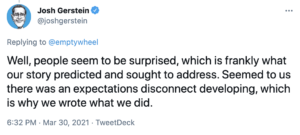
I agree with Gerstein that people have certain expectations. But that was clear before the end end of January. The record laid out here shows that such expectations did not come from Garland or Biden. Even Sherwin, with his totally inappropriate 60 Minutes interview, also explained from the start that DOJ was arresting the low hanging fruit at first while further investigating more serious suspects.
The fault, instead, lies with journalists, myself and these Politico journalists included, for not consistently and repeatedly explaining the various different roles people played on January 6, including that there were a number — though currently a shrinking fraction of the total set of defendants — who neither pre-meditated any effort to stop the vote count nor assaulted cops. I have tried to engage in this nuance (I included a list of such posts below), but given the sheer amount of court filings, much of the focus is currently on the militia conspiracies, suggesting a gravity that the MAGA tourists don’t merit. But in this article, rather than simply laying out the full range of defendants, describing how the MAGA Tourists played a key role in the success of the more serious conspirators (explicitly so for the Proud Boys, who talked about getting “normies” to do stuff they otherwise wouldn’t have done), describing how violence spread among participants and often as not among people who aren’t militia members, this Politico piece further distorts the record, not least by using this subset of “MAGA Tourists” — calling them “many” even though they represent just a quarter of defendants who have been formally charged — to stand in for the larger investigation, while minimizing the import of those charged with obstruction (likening that role to a CodePink interruption of a congressional hearing) because, evidence shows, they premeditated an attempt to undermine the election outcome.
So even while the piece describes how both judges and prosecutors understand that the mob as a whole posed a grave threat while some individual defendants did no more than provide cover for the more dangerous defendants (and many of the DC judges presiding over these cases have made such comments), Politico claims that there’s some embarrassment to this, including some kind of political risk for Biden.
Judges are also attempting to reckon with separating the individual actions of rioters from the collective threat of the mob, which they have noted helped inspire and provide cover for violent assaults, property destruction and increased the overall terror and danger of the assorted crimes committed.
That reckoning is coming sooner rather than later, lawyers say, putting prosecutors in the position of wrist-slapping many participants in the riot despite framing the crimes as part of an insurrection that presented a grave threat to American democracy.
If the MAGA tourists provided cover and helped overwhelm cops, thereby serving a useful role in the plans of those who had a more nefarious and organized purpose, then that’s the story that should be told, not some kind of both-sides political spin, particularly one that pits Biden’s claims about the seriousness of this on the footing as Trump’s outright lies about it. In spite of the overwhelming number of defendants, the record shows, DOJ is still assessing each one on the merits, which is what should happen. Declaring that politically embarrassing is an abdication of fair reporting on the legal system.
I believe DOJ has gotten it wrong, in both directions, in some cases. In addition to those listed above, I think DOJ has gone too harshly on some people who have openly supported far right, even Nazi views. But I also think DOJ has only considered whether militia members were members of premeditated conspiracies, focusing less on localized activist networks that have been implicated in violent (often anti-mask) pro-Trump actions in the past, taken on leadership roles at the riot, and engaged in ongoing communications about plans to shut down the vote, just like militias did. I think DOJ hasn’t come to grips with the organizational import of QAnon even while arguing that individual adherents of the cult must be jailed because they are delusional. And until DOJ decides how it will treat Trump’s actions and those of some close associates — something they likely cannot do without more investigation and cooperation deals from key participants — parts of this investigation will remain unsettled.
There are definitely things DOJ has reason to be embarrassed about: Gerstein has written more than any journalist about the unforgivable delays in moving defendants around the country and getting them arraigned. This piece also focuses on one of the handful of misdemeanor defendants who has been detained since being charged. While I understand the complexity of an investigation in which so much of the evidence — both exculpatory and inculpatory — remains in the hands of participants, defendants have a right to complain about the delay, especially those in detention. Defendants — particularly those in detention — are entitled to a Speedy Trial, even if DOJ moved too quickly to arrest them. While many of these things were exacerbated by COVID, they also largely arise from a decision to arrest first on those trespassing charges, and investigate later (which also has led to more defendants being charged with obstruction after the fact).
But none of those things have to do with Biden or Garland’s views about the investigation, or even the prosecutors who made decisions that created some of these problems in the first place (in part, probably, to avoid their own embarrassment at missing all warning signs, in part because they hadn’t investigated these threats aggressively enough and so had to make mass arrests to mitigate any immediate follow-on threats).
In short, this piece is an (uncharacteristic) mess, shoehorning complexity into a simplistic claim of political conflict, one inventing embarrassment out of thin air for Biden. If Politico has evidence that this wasn’t an unprecedented disruption to Congress, one that could have had a far worse outcome, including a threat to our democracy, or that this right wing violence is less of a threat than FBI says it is, by all means they should present that. At the same time, they can reveal the identity of the pipe bomber and the role (if any) that person played in the plot, without which no one can claim to actually know how serious this was.
Until then, they and all experienced DOJ beat reporters would be far better off by simply laying out a description of the different kinds of defendants we’re seeing, the different roles they played in disrupting the vote count and assaulting or undermining law enforcement, and explaining how those defendants are the same or different from defendants that have gone before them, on a spectrum of severity that stretches from CodePink to ISIS terrorists.
If people are going to be surprised when the subset of participants in January 6 who engaged in non-violent civil disobedience are treated as misdemeanor offenders, it’s not Joe Biden’s fault. It is a failure of journalism, my own included, for not making that more clear starting in January and reiterating it since then.
Update: Meanwhile, Jon Schaffer just agreed to two more weeks in jail.
Update: Corrected Munchel’s arrest date, which was January 10.
Update: Christopher Kelly (no relation to Kash) is another person with a consent continuance to discuss what would almost certainly be a cooperation agreement. He drove to and from the insurrection with some Proud Boys.
Posts attempting to contextualize the investigation
Here are some past attempts I’ve made at explaining how the parts of the January 6 investigation fit together:

